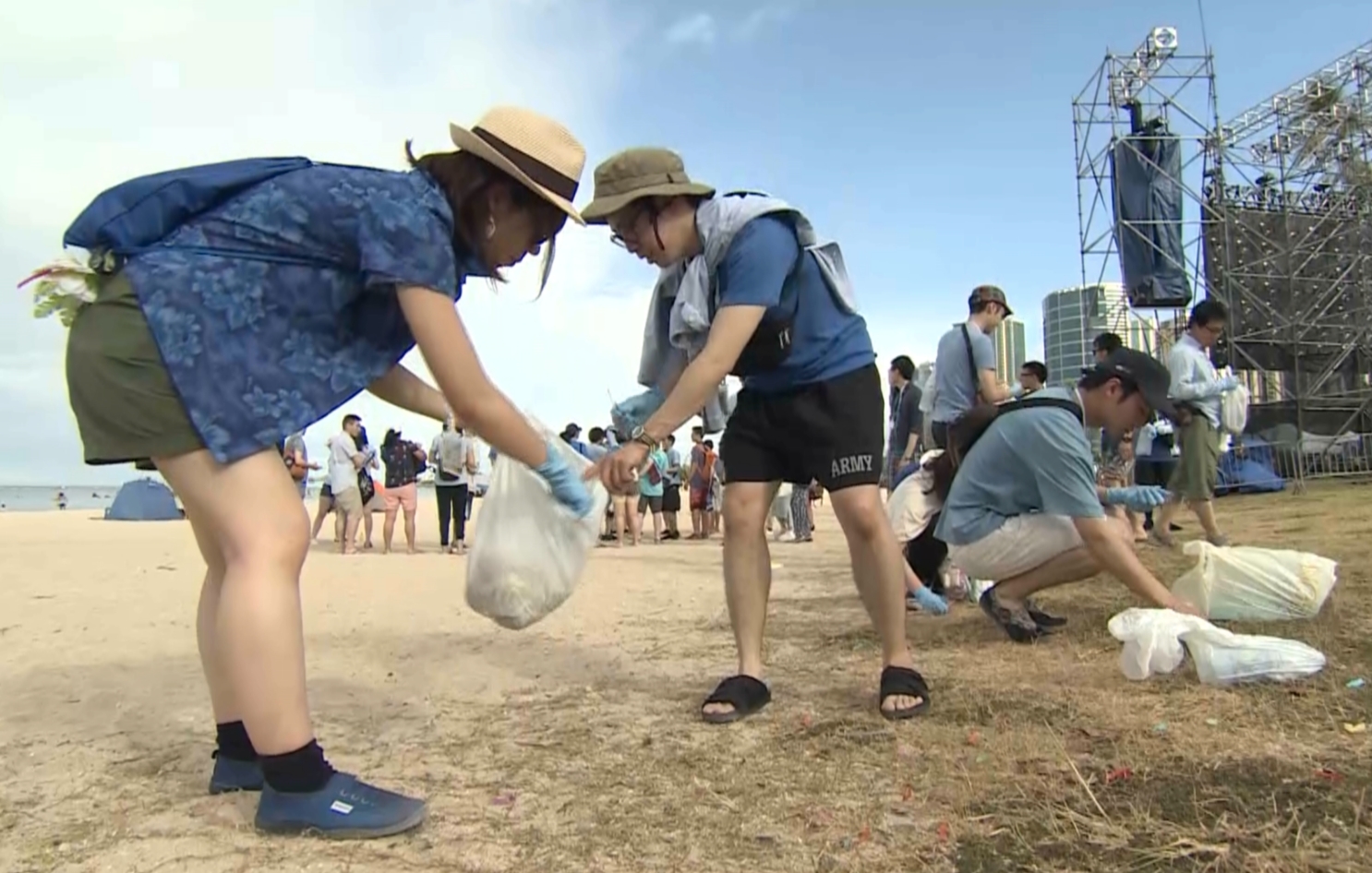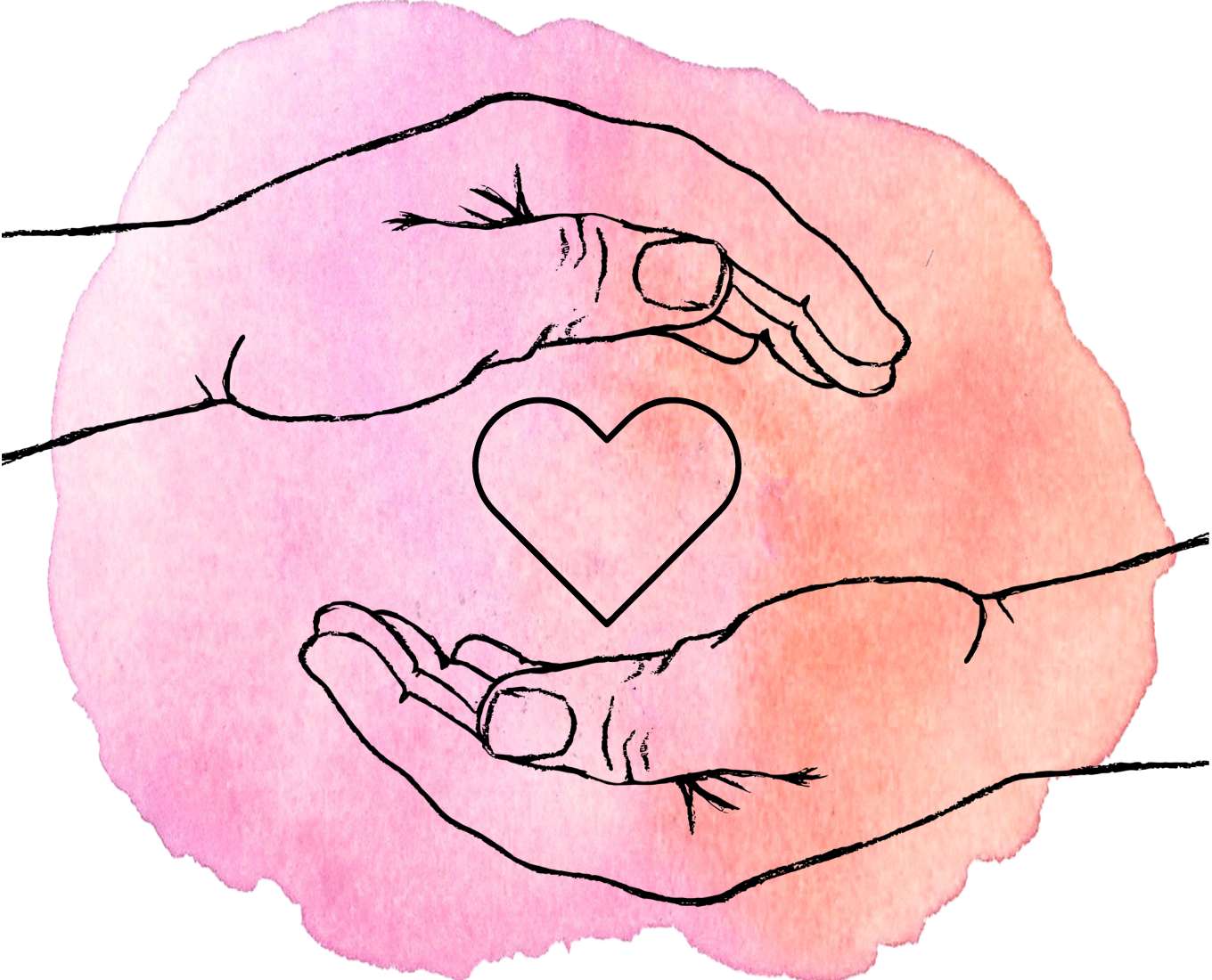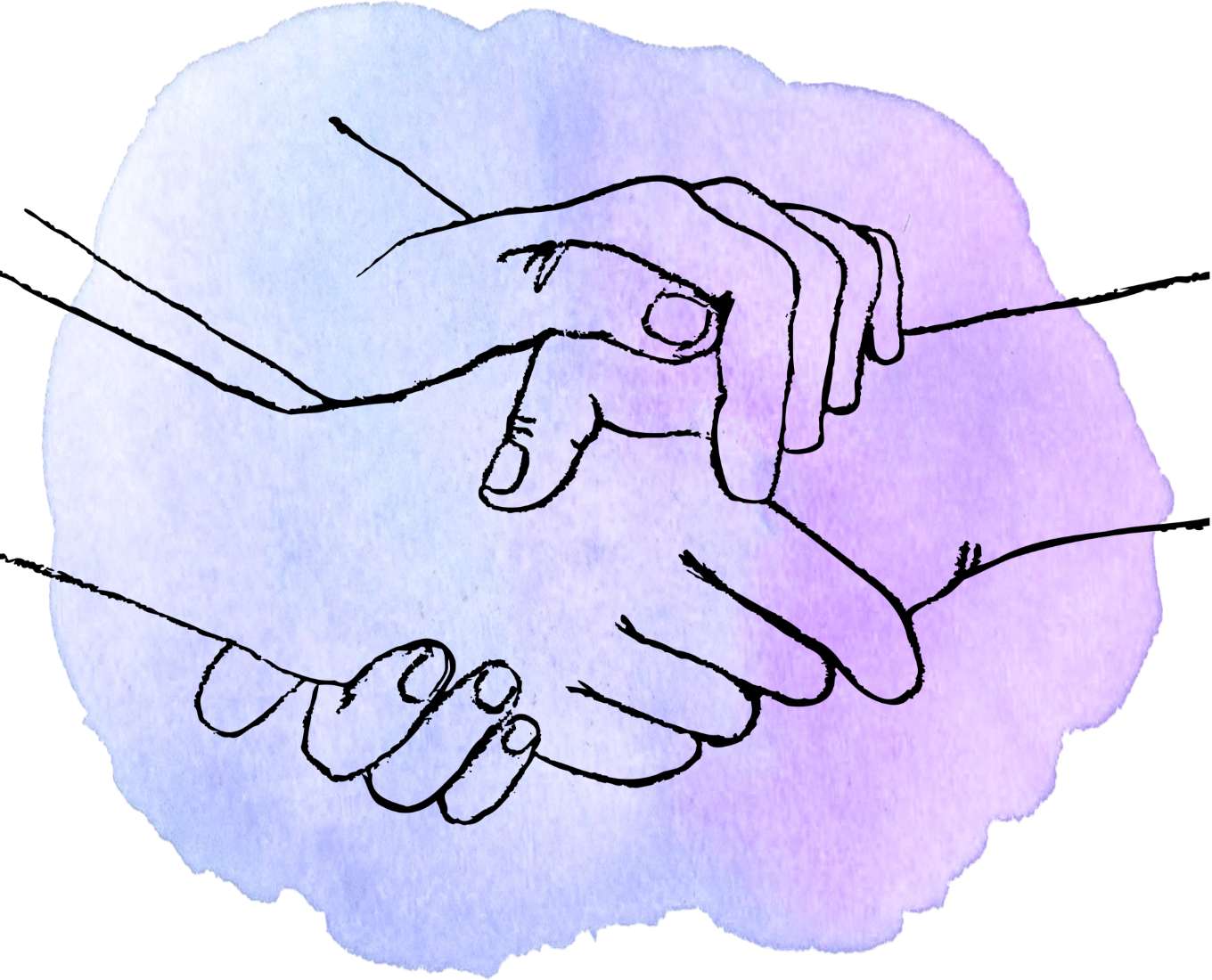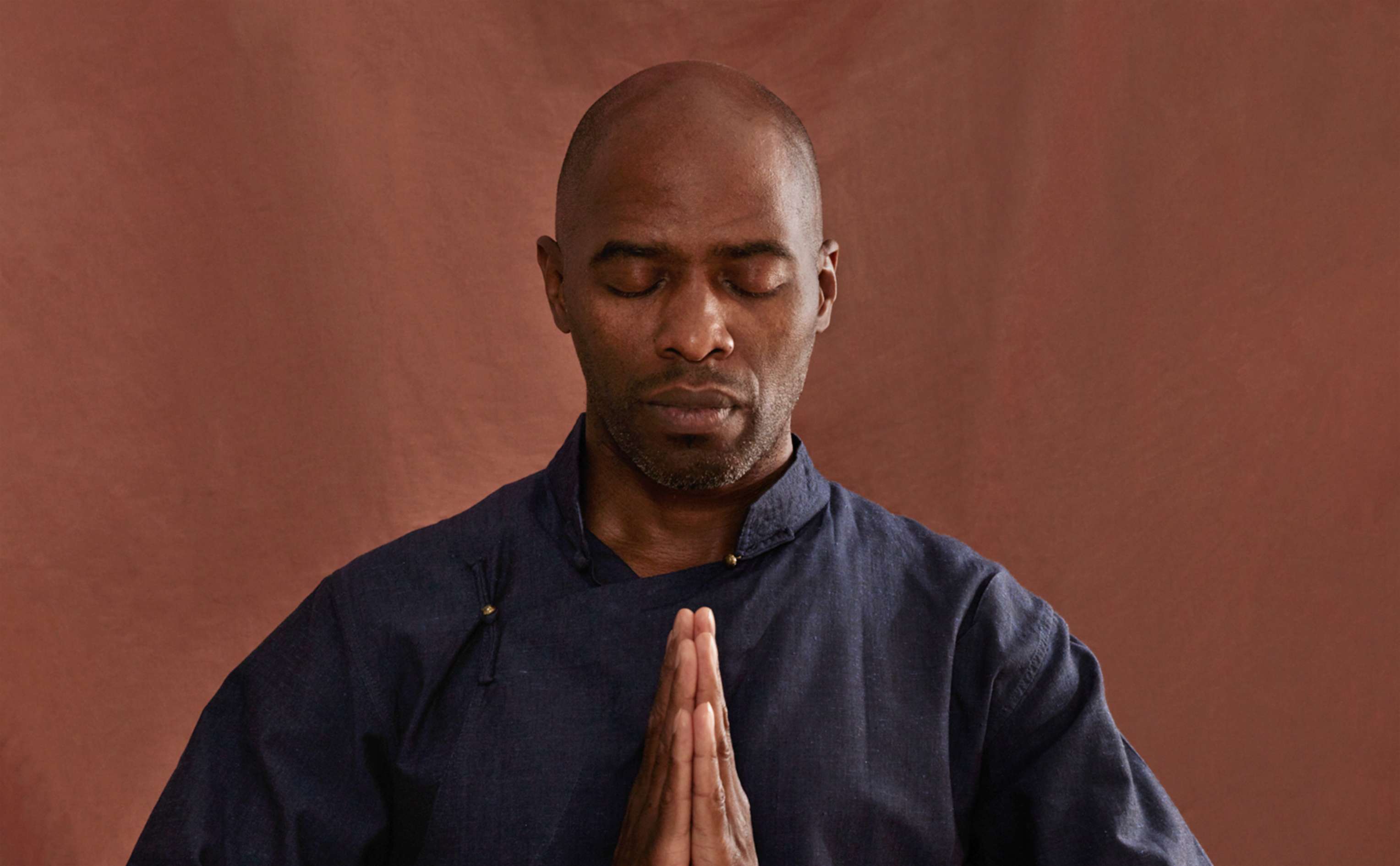Shinnyo‑en Practices
The spiritual path to peace and happiness cultivated at Shinnyo‑en is rooted in a profound sense of shared humanity that comes from understanding that all living beings are interconnected. Shinnyo‑en practices cultivate the three Buddhist disciplines of integrity, meditation, and wisdom. These practices nurture and bring out our natural goodness, and they foster harmony in our lives and in the relationships we share with others.

Other-Focused Integrity
The Buddhist discipline of integrity requires that we avoid harming others and that we extend them care in whatever way we can. Ways Buddhists extend care include offering others genuine, positive regard that is free from judgment. This kind of care helps soothe divisions, promotes harmony, and gives spiritual or material aid. At Shinnyo‑en we cultivate integrity by practicing service, joyous giving, and spiritual care in our lives. Over time, observing these practices leads to a feeling of connection and commitment to one’s community and a desire to freely share what we can with others. This focus on connection–rather than correction–helps cultivate the authentic inner goodness we all possess and allows it to shine and inspire others.

Service
To practice service we volunteer in our communities. Volunteering at a local Shinnyo‑en temple, through a community service organization, or joining an early morning neighborhood cleanup crew are all common ways in which Shinnyo‑en members offer service. Even small interpersonal acts of service nurture our discipline of integrity.

Joyous Giving
To practice joyous giving we make monetary and other offerings, no matter how small, to community temples, local food banks, or to organizations that help people in need. Offering our time and attention to people who need it also helps develop a spirit of joyous giving.

Spiritual Care
To practice spiritual care we put aside judgment and offer others genuine, positive regard so that they may recognize and express their own inner goodness. Heartfelt conversation, sharing the peace and tranquility of meditation, or simply meeting others with kindness, empathy, and acceptance are examples of practicing spiritual care.
Meditation
The Buddhist discipline of meditation, in general, is intended to calm and collect our busy minds so that we can see ourselves, others, and the world we live in clearly. Serene, concentrated contemplation nurtures and grows the natural goodness inside of us all. There are different types of Buddhist meditation, but all are tools intended to strengthen our good qualities so we become more genuine, open, and accepting of others and less self‑centered.
Shinnyo‑en’s specific form of seated meditation is called sesshin, which is a Japanese word that means “touching the essence of buddhahood.” The practice is meant to guide one to see things from the perspective of a buddha—to see oneself clearly and realize the interdependent relationships that compose the universe. Sesshin is practiced in both a formal and informal way.

In formal sesshin, also called structured sesshin, a Shinnyo‑en member practices meditation with a qualified spiritual guide who offers words of spiritual guidance to the meditator. Guidance given during sesshin happens only between a single meditator and single spiritual guide and is specific to the meditator’s individual needs.
Once a member has received spiritual guidance, they carry that advice with them into their daily life, to “retouch the essence of buddhahood” in real world situations. This practice of bringing spiritual learnings from formal sesshin into our everyday lives is called informal or unstructured sesshin. Informal sesshin has no prescribed form and is experienced differently from person to person. However, informal does not mean “less meaningful.” It is in one’s lived, daily experience that insight truly develops, as the heart of our practice in Shinnyo‑en unfolds in our relationships with others.
As one’s understanding of the practice deepens, so does the nature of the guidance one receives. Sesshin is a living, interpersonal practice that matures with the meditator. Although formal sesshin is only conducted within a Shinnyo‑en temple or training center with a qualified spiritual guide, the qualities and insight one develops from that practice can illuminate every facet of one’s life. Since sesshin training is derived from Esoteric Buddhist traditions, it requires a certain level of preliminary commitment and training to participate.

Wisdom
The Buddhist discipline of wisdom, in general, refers to the shift in perspective that allows one to clearly see the interdependent nature of the world, just as it is. As we begin to better understand shinnyo—the “as-it-is-ness” that is the essential nature of everything—the fixations and unneeded attachments that have obscured our natural goodness fade away. As with ordinary wisdom, transcendent wisdom develops gradually with study, reflection, and experience, as one matures in the spiritual disciplines of integrity and meditation.
At Shinnyo‑en, members develop their understanding of shinnyo, or the essential nature of reality, by listening to teachings from the founders, Her Holiness Shinso Ito, or from qualified teachers and mentors. Members also gather in community to share their experiences of practice, ask questions, and study the basis of these disciplines as they practice them.
In the Shinnyo‑en path of spiritual practice, we work to cultivate wisdom amid our ordinary, day to day lives, recognizing moments when our natural goodness spontaneously shines. We call these experiences “buddha moments,” which are times when we see a situation with wisdom that allows us to experience love and compassion for others, avoid differentiating between friend or foe, and act unselfishly for the good of others.
As our spiritual practice matures, our heart grows clear through the discipline of integrity, our mind becomes stable through the discipline of meditation, our ability to see the world with wisdom strengthens, and buddha moments grow more frequent and last longer. The ultimate goal of practice at Shinnyo‑en is to develop these moments until we finally rest firmly in the experience of lasting inner peace and happiness that is the permanent awakening of buddhahood itself.
